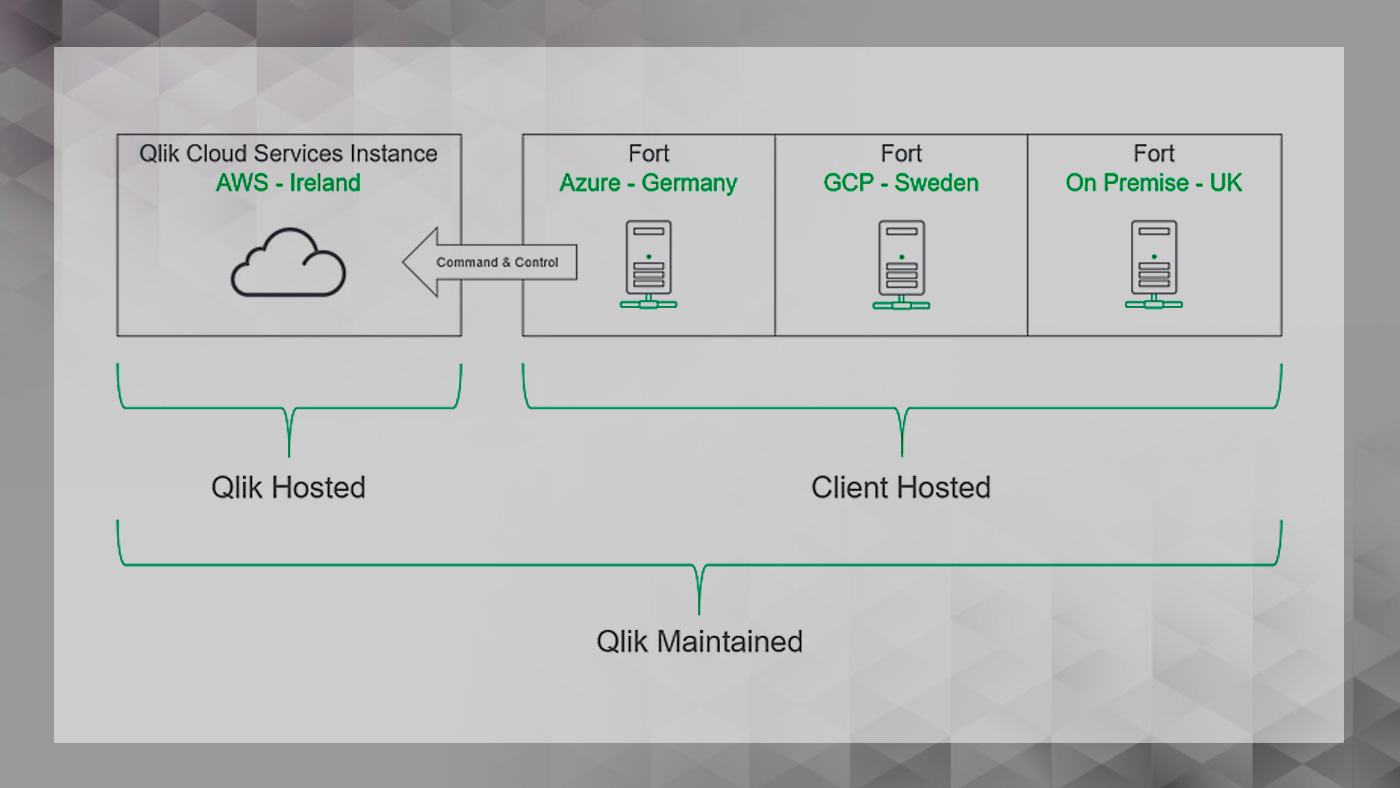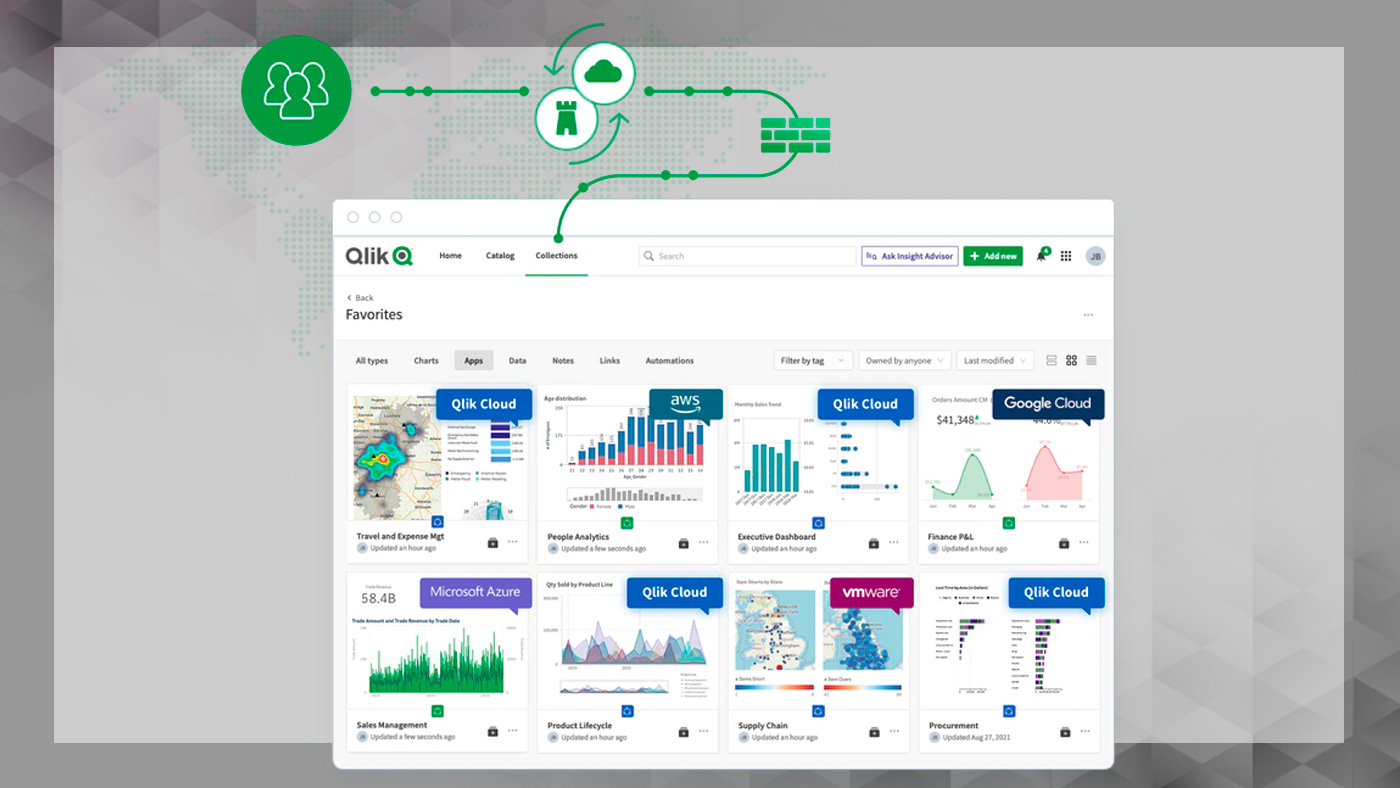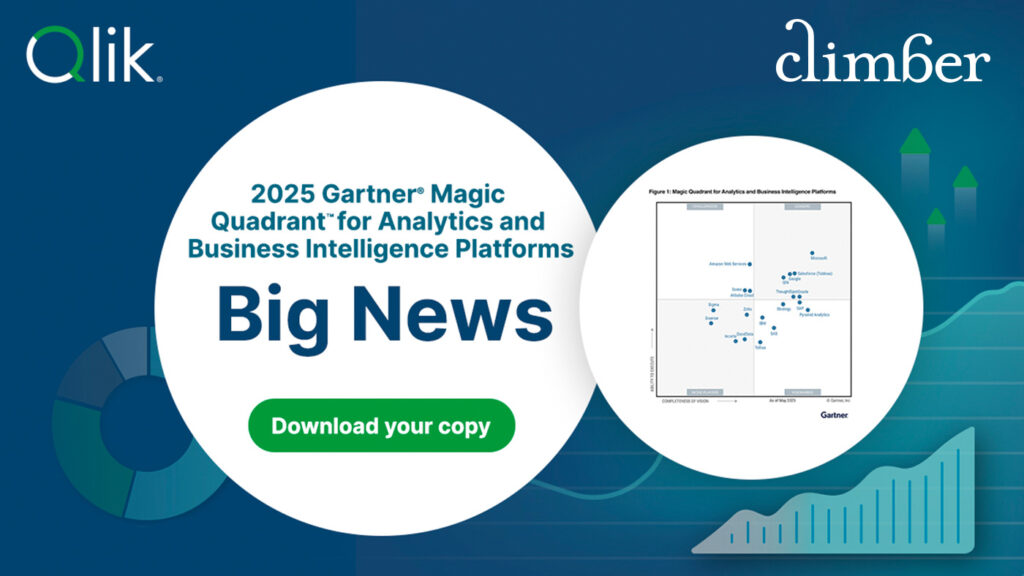
Protecting data sovereignty with Qlik Forts
Read Climber BI’s Senior BI Consultant Roger Gray’s thoughts on the use cases with Qlik Forts – a solution that securely extends your cloud analytics capabilities to wherever data and compute needs to reside.
Sovereignty is a word we’re rightly hearing a lot in the news at the moment and the importance of complete power of governance. Of course, when it comes to governance for an organisation the consequences are far less harrowing, but the issue remains central to how data is controlled.
For some organisations, it’s crucial that they retain complete control to govern their data to ensure it’s not relocated or replicated to another territory. This may be due to specific regulation that requires certain personal, financial, governmental, employee and health data to remain within the respective country or territory.
Cloud application services continue to grow rapidly, in fact Gartner predicts that almost two-thirds (65.9%) of spending on application software will be directed toward cloud technologies in 2025, up from 57.7% in 2022. This shows that Software as a Service (SaaS) has come of age, with more businesses now recognising the benefits and being confident to migrate from on premise systems.
Qlik Forts delivers the cloud with governance
Qlik FortsTM is a solution for businesses that wish to benefit from cloud-based analytics and adhere to local country data regulations. It’s a hybrid service – with a pre-packaged and pre-configured Qlik Sense SaaS server – which can be deployed ‘next to’ the data deployed onto AWS, GCP, Azure or VMWare vSphere/vCenter hosts.
There’s no need to manage updates as the appliance is fully managed by Qlik as an extension to the Qlik cloud solution. All data is encrypted in flight and at rest, making it impossible of Qlik to access the data.
As far as the Qlik Sense SaaS user is concerned there’s a single point of entry to the Qlik cloud server they currently use. The Qlik Fort is just another space containing one or more analytics applications they can access.


All the data remains behind the organisation’s firewall and local to the Qlik Fort; you can setup a secure connection from the Qlik Cloud to the Qlik Fort with access to the analytics application if required. The secure connection and Qlik Fort deployment are then managed through the Qlik Cloud management console where a typical deployment takes less than an hour to complete.
Finally, there is another great use case for a business that has a large volume of data and doesn’t want to suffer the expense of relocating or replicating the data. Just leave the data where it is and use a Qlik Fort to provide insights.
/Roger Gray, Senior BI Consultant, Climber BI
Talk to us
Roger Gray
BI Manager
roger.gray@climberbi.co.uk
+44 203 858 0668
James Sharp
Managing Director
james.sharp@climberbi.co.uk
+44 203 858 0668
News archive

Qlik a Leader in the 2025 Gartner Magic Quadrant for Analytics and Business Intelligence Platforms
Get your free copy for an overview of the entire Analytics and Business Intelligence landscape and see why Gartner has recognised Qlik as a Leader in the Magic Quadrant for the 15th straight year.
>> Download the report
What’s New in Qlik Cloud – July 2025
Qlik kicks off the second half of the year with improvements designed to make your Qlik Cloud experience even better – whether you’re a report writer, building automations, fine-tuning analytics apps, managing ML workloads, or strengthening security. Here’s a detailed look at what’s fresh this month.
>> Read more
The AI Reality Tour London 2025
Join us in London on 8th July for a high-impact experience that will change the way you think about data, analytics, and AI. Discover the latest innovations in Qlik, hear inspiring customer cases, and exchange experiences with your peers!
>> Register today
